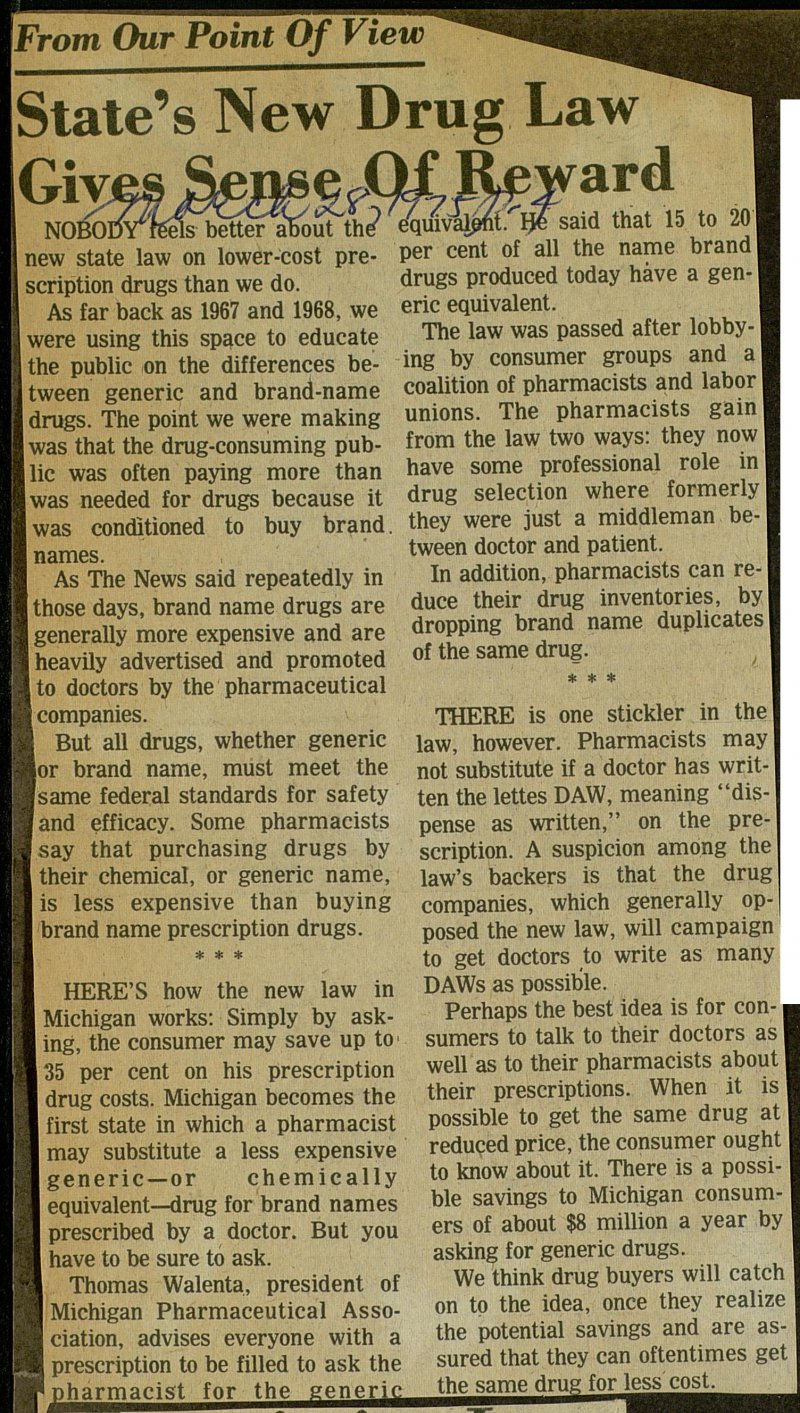State's New Drug Law Gives Sense Of Reward

NOBOnr reeís better about thé new state law on lower-cost prescription drugs than we do. As far back as 1967 and 1968, we were using this space to edúcate the public on the differences between generic and brand-name drugs. The point we were making was that the drug-consuming public was often paying more than iwas needed for drugs because it was conditioned to buy brand, names. As The News said repeatedly in those days, brand name drugs are generally more expensive and are heavily advertised and promoted to doctors by the pharmaceutical companies. But all drugs, whether generic or brand name, must meet the same federal standards for safety and efficacy. Some pharmacists say that purchasing drugs by their chemical, or generic name, is less expensive than buying brand name prescription drugs. HERE'S how the new law in Michigan works: Simply by asking, the consumer may save up to' 35 per cent on his prescription drug costs. Michigan becomes the first state in which a pharmacist may substitute a less expensive generic- or chemically equivalent- drug for brand names prescribed by a doctor. But you have to be sure to ask. i Thomas Walenta, president of Michigan Pharmaceutical Association, advises everyone with a prescription to be filled to ask the I pharmacist fnr the generic quívaléfií. p said that 15 to 201 per cent of all the name brand I drugs produced today háve a 1 eric equivalent. I The law was passed after 1 ing by consumer groups and al coalition of pharmacists and labor I unions. The pharmacists gain from the law two ways: they now have some professional role in drug selection where formerly they were just a middleman .between doctor and patiënt. In addition, pharmacists can reduce their drug inventor ies, by dropping brand name duplicates of the same drug. t I THERE is one stickler in the law, however. Pharmacists may not substitute if a doctor has written the lettes DAW, meaning "dispense as written," on the prescription. A suspicion amóng the law's backers is that the drug companies, which generally opposed the new law, will campaign to get doctors to write as many DAWs as possible. Perhaps the best idea is for ■ sumers to talk to their doctors as I well as to their pharmacists about their prescriptions. When it is possible to get the same drug at I reduced price, the consumer ought to know about it. There is a possible savings to Michigan consumers of about $8 million a year by asking for generic drugs. We think drug buyers will catch on tp the idea, once they realize the potential savings and are assured that they can oftentimes get the same drug for less cost.